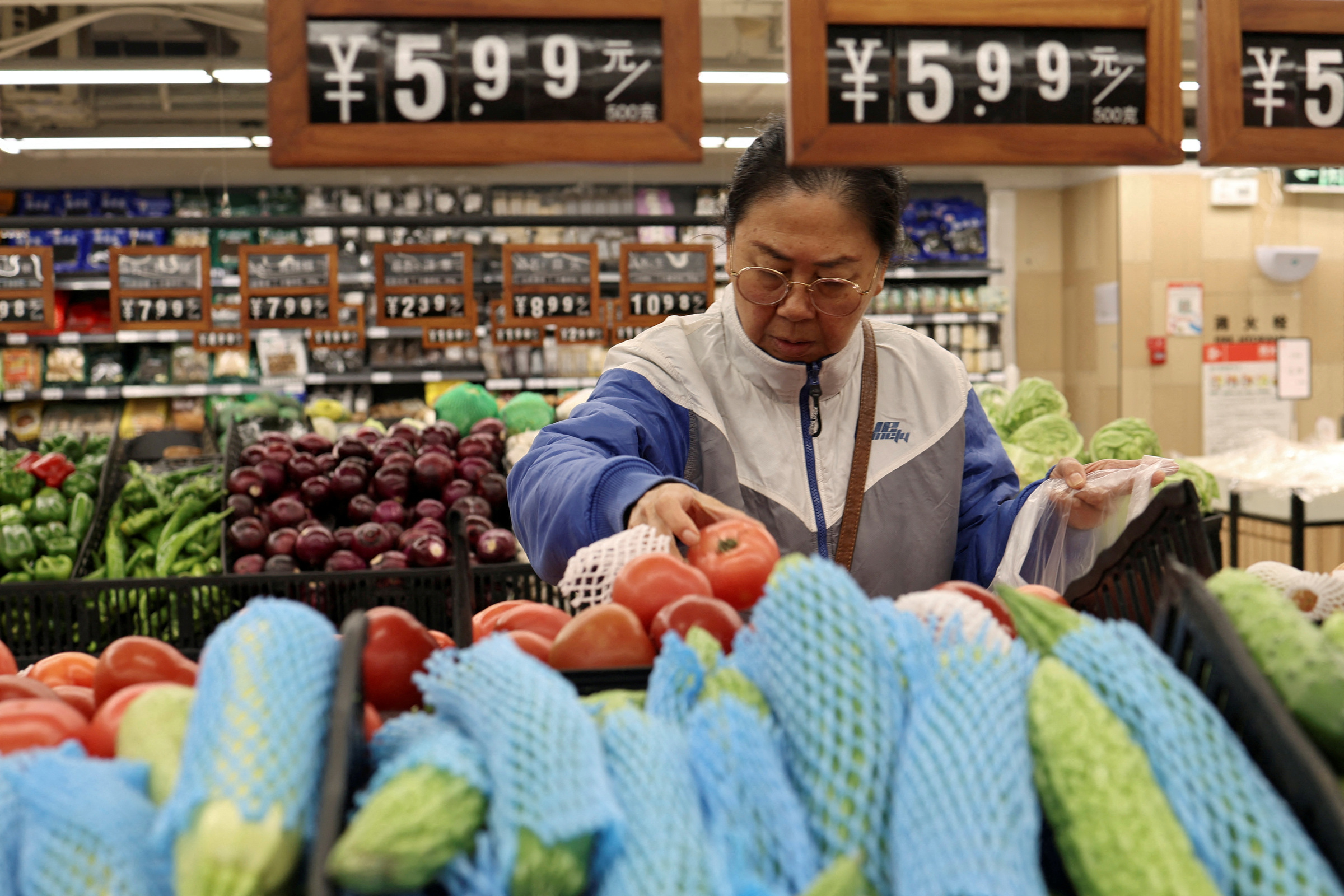China's National Bureau of Statistics (NBS) reported that retail sales grew by 3.4% in August. This is the slowest pace since 11/2024 and below what Reuters' economists surveyed had predicted.
Industrial output also saw a slowdown, growing by only 5.2% in August, its slowest pace in 12 months. Production was impacted by tariffs and scorching summer weather, with the highest temperatures since 1961 and prolonged heavy rain.
Some Chinese factories have shifted orders from the US to Southeast Asia, Africa, and Latin America to mitigate the impact of President Trump's tariff policies. However, the real estate crisis continues to cast a shadow, hindering officials' efforts to stabilize the economy.
New home prices also declined by 2.5% compared to the same period last year. In the first eight months of the year, real estate investment fell by nearly 13%. Overall, total fixed-asset investment in the economy during this period increased by only 0.5%, lower than expected.
 |
People shop for groceries at a supermarket in Beijing, China, on 17/10/2024. Photo: Reuters |
People shop for groceries at a supermarket in Beijing, China, on 17/10/2024. Photo: Reuters
The urban unemployment rate last month stood at 5.3%, slightly up from July, as China entered graduation season. The NBS assessed that the external environment remains unstable. "The national economy still faces many risks and challenges," the agency stated.
Analysts believe Beijing needs to increase short-term fiscal support to achieve its 5% growth target for this year. This is deemed necessary as manufacturers await a clear trade agreement with the US and domestic demand is constrained by an uncertain job market and a protracted real estate crisis.
According to Lynn Song, chief economist for China at ING bank (Netherlands), it is too early to assess the impact of consumer loan subsidy policies that took effect in September. "But with widespread weakness, further policy support is highly likely," she said. She predicts that in the next few weeks, officials may lower interest rates by a further 0.1 percentage points and reduce the reserve requirement ratio by 0.5 percentage points.
Last week, Zheng Shanjie, chairman of the National Development and Reform Commission (NDRC), said Beijing would make full use of fiscal and monetary policies to achieve its annual economic targets. He also pledged to improve policies and called for accelerating the issuance of new financial tools in the second half of the year.
Phien An (according to Reuters, CNBC)












